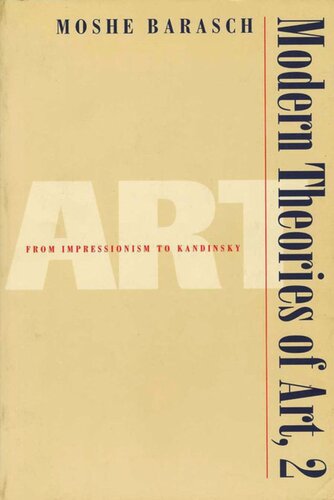

Most ebook files are in PDF format, so you can easily read them using various software such as Foxit Reader or directly on the Google Chrome browser.
Some ebook files are released by publishers in other formats such as .awz, .mobi, .epub, .fb2, etc. You may need to install specific software to read these formats on mobile/PC, such as Calibre.
Please read the tutorial at this link: https://ebookbell.com/faq
We offer FREE conversion to the popular formats you request; however, this may take some time. Therefore, right after payment, please email us, and we will try to provide the service as quickly as possible.
For some exceptional file formats or broken links (if any), please refrain from opening any disputes. Instead, email us first, and we will try to assist within a maximum of 6 hours.
EbookBell Team

5.0
110 reviewsIn this volume, the third in his classic series of texts surveying the history of art theory, Moshe Barasch traces the hidden patterns and interlocking themes in the study of art, from Impressionism to Abstract Art.
Barasch details the immense social changes in the creation, presentation, and reception of art which have set the history of art theory on a vertiginous new course: the decreased relevance of workshops and art schools; the replacement of the treatise by the critical review; and the interrelation of new modes of scientific inquiry with artistic theory and praxis. The consequent changes in the ways in which critics as well as artists conceptualized paintings and sculptures were radical, marked by an obsession with intense, immediate sensory experiences, psychological reflection on the effects of art, and a magnetic pull to the exotic and alien, making for the most exciting and fertile period in the history of art criticism.